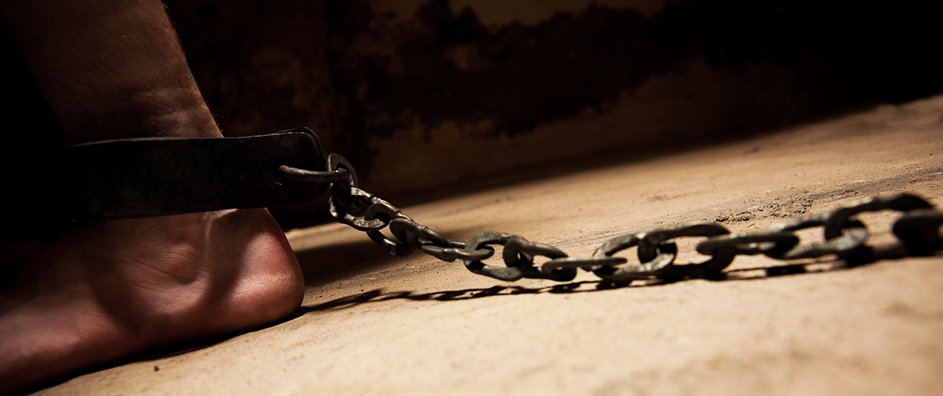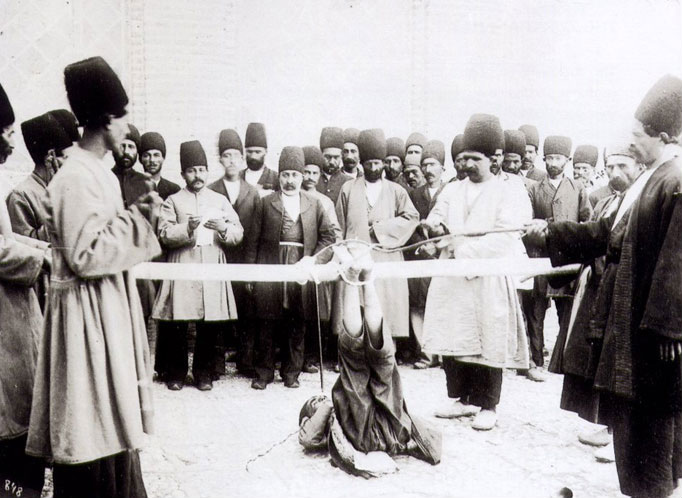The views expressed in our content reflect individual perspectives and do not represent the authoritative views of the Baha'i Faith.
All visionaries suffer tremendously for their trouble.
What is it about us human beings? We always seem to reject new messages, and their messengers. We persecute our visionaries, our discoverers, our scientific pioneers and our great religious teachers. History demonstrates that the founders of new Faiths have typically undergone tremendous pain, persecution and torment. Jail, homelessness, starvation, extreme privation, exile, banishment, beatings, torture and death have all plagued the prophets. Despite their peaceful, spiritual intentions; despite their love for us all; despite their messages of hope and love and unity and harmony; they each face enormous opposition when they appear and begin to proclaim a new Faith.
The Baha’i teachings reflect on this frequently, and conclude that God’s prophets and messengers go through such persecution to help demonstrate the immortality of the human soul:
…the idea of mortality presupposes the existence of immortality — for if there were no Life Eternal, there would be no way of measuring the life of this world!
If the spirit were not immortal, how could the Manifestations of God endure such terrible trials?
Why did Christ Jesus suffer the fearful death on the cross?
Why did Muhammad bear persecutions?
Why did the Bab make the supreme sacrifice and why did Baha’u’llah pass the years of his life in prison?
Why should all this suffering have been, if not to prove the everlasting life of the spirit?
Christ suffered, He accepted all His trials because of the immortality of His spirit. If a man reflects he will understand the spiritual significance of the law of progress; how all moves from the inferior to the superior degree. It is only a man without intelligence who, after considering these things, can imagine that the great scheme of creation should suddenly cease to progress, that evolution should come to such an inadequate end! – Abdu’l-Baha, Paris Talks, p. 93.
Every one of the founders of the world’s great Faiths had to face these kinds of lifelong tests, trials and tribulations. Baha’u’llah, the prophet and founder of the Baha’i Faith, likely suffered them the longest.
Raised in relative comfort as the son of a landowner and government minister, Baha’u’llah began to face the cruel agonies of extreme opposition when he became a follower of the Bab in the mid-1840s in Persia. Violently persecuted by the Muslim clergy and Muslim governmental officials, the Bab and his followers suffered unprecedented, historic levels of abuse, torture and death as a result of their beliefs:
The Bab was born in Shiraz, in the month of October, 1819. At the age of twenty-four he heralded the advent of a universal teacher whom God would manifest, and through whom the unity of all nations would be established. The Bab (door or gate) effected a reformation of Islam, opening the way for a broader movement — for always with earnestness and zeal he cried of one who was to come after him to illumine not only Islam, but the whole world. The young reformer made his declaration in 1844 at Shiraz and afterward at Mecca, where one hundred thousand people had congregated.
His teachings met with instant opposition on the part of the orthodox religionists of the day. After two years he was imprisoned and held a prisoner until 1850 when he was shot in the public square of Tabriz.
But physical torture and death were ineffectual to stop the onsweep of the reformation inaugurated by the Bab. When, some years later, Baha’u’llah arose as the one who was expected, thousands accepted him and at once came under his banner. Baha’u’llah was not personally related to the Bab, nor had he ever seen him, though he became one of the first disciples of the Bab’s teachings.
Dreadful persecution ensued and more than twenty thousand martyrs joyfully gave up property and life rather than renounce the faith which they recognized as divine truth. At such variance were his teachings with the creed-bound world about him that Baha’u’llah, with his family and followers, was banished to Bagdad, to Constantinople, to Adrianople and finally to the penal colony of Acca in Syria. – Abdu’l-Baha, Divine Philosophy, p. 5.
The first time Baha’u’llah faced physical torture for his beliefs, as a young man of 35 in 1852, he suffered the horrible pain of the bastinado—an excruciating whipping and laceration of the soles of the feet:
…Baha’u’llah stepped forth from his tent and explained the birth of a new cycle – that the horizons were flooded with new ideals – the antiquated laws were no longer valid – that a new revelation, a new light had come. He exhorted them to sacrifice themselves for it. From that moment the cause of Baha’u’llah leaped into a flaming torch.
These are the conditions under which this great universal movement began. Persia was in revolt. The government set itself against the movement, the ulama supporting the government. Terrible massacres ensued. They seized the body of Baha’u’llah and imprisoned him in Tehran where the ulama met and summoned him to appear before them in the mosque that they might question him and refute his statements. They searched one of his disciples and found on him a paper containing teachings in the Bab’s handwriting in which there were inaccuracies from their orthodox Mohammedan viewpoint. Baha’u’llah showed them with incontrovertible proof that the mistakes lay in their limited interpretations – that the reality of truth is one. They became enraged and put him to the torture of the bastinado, inflicting sixty strokes. They condemned him to death and ordered the executioner to come with his instruments of torture to martyr their majestic prisoner. The governor, fearful lest the people should arise to vindicate Baha’u’llah, caused an opening to be made in the wall of the mosque through which Baha’u’llah was taken by night to the governor’s house and after a time the order came to liberate him. – ibid, p. 65.
This first terrible episode of torture in Baha’u’llah’s life would not be the last.

















Comments
Sign in or create an account
Continue with Googleor